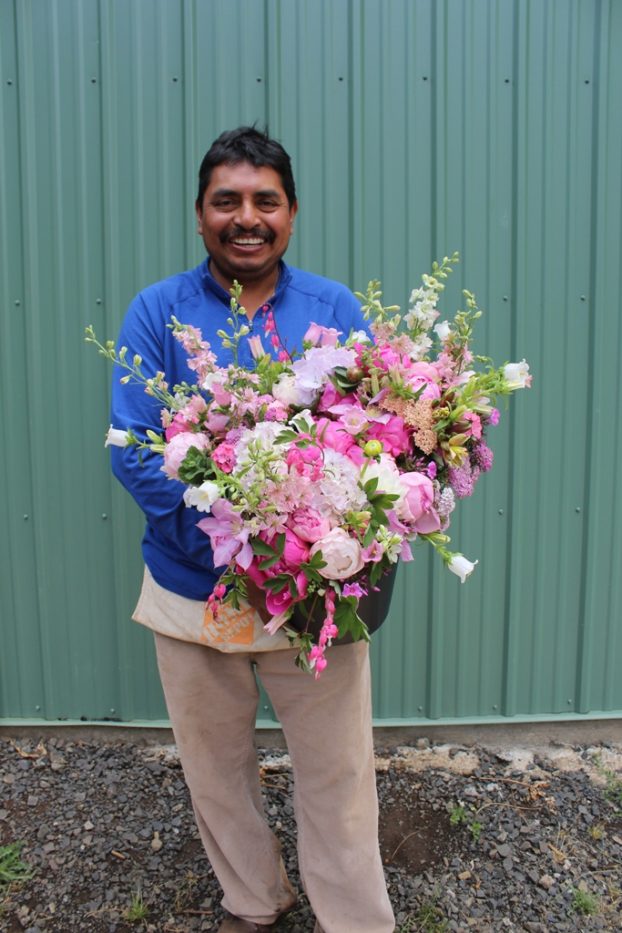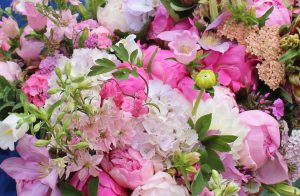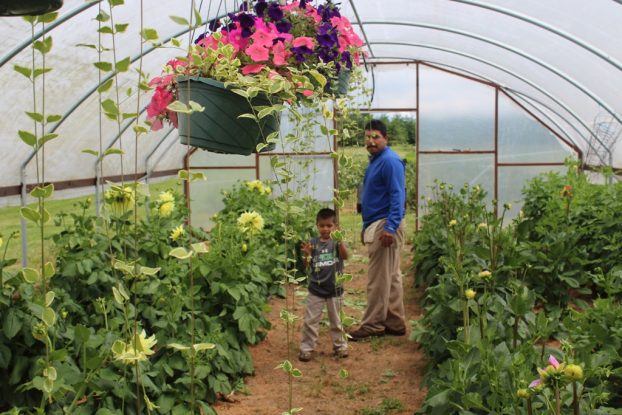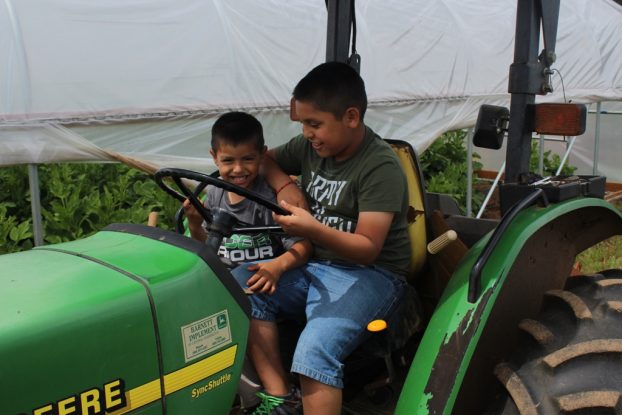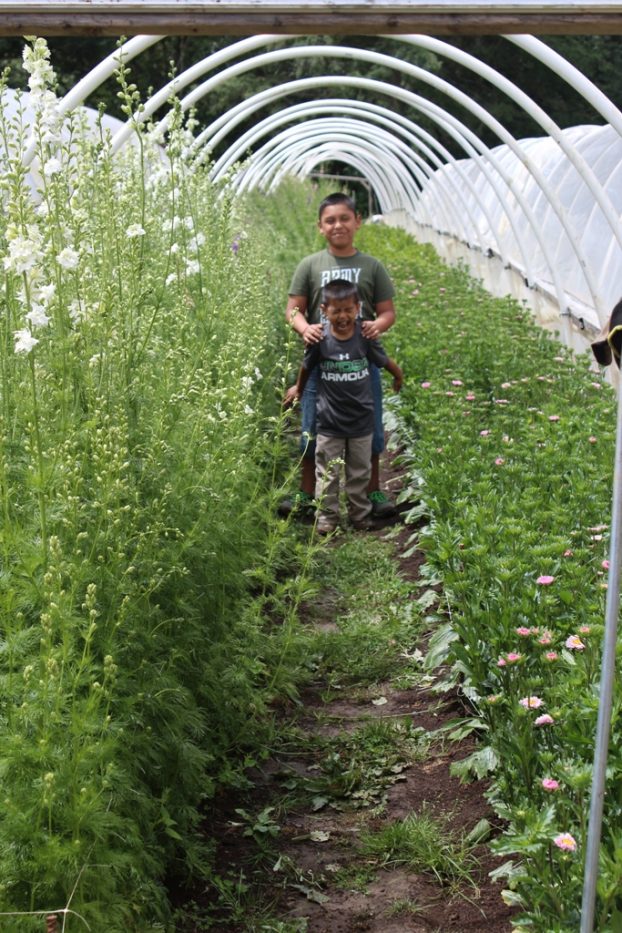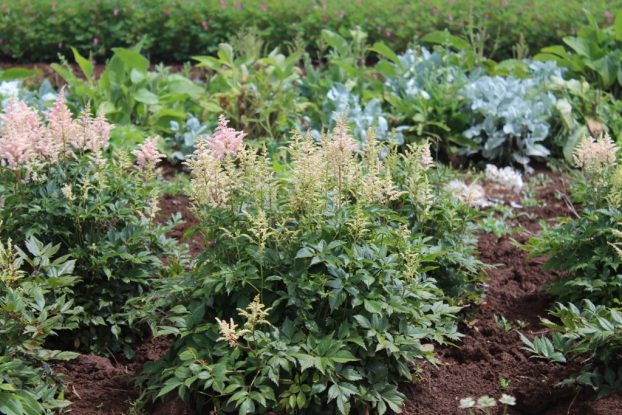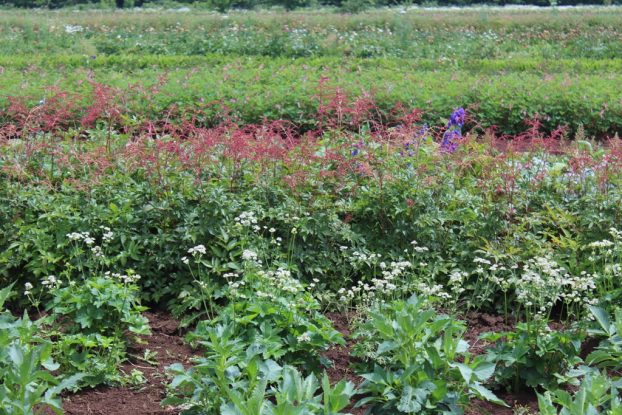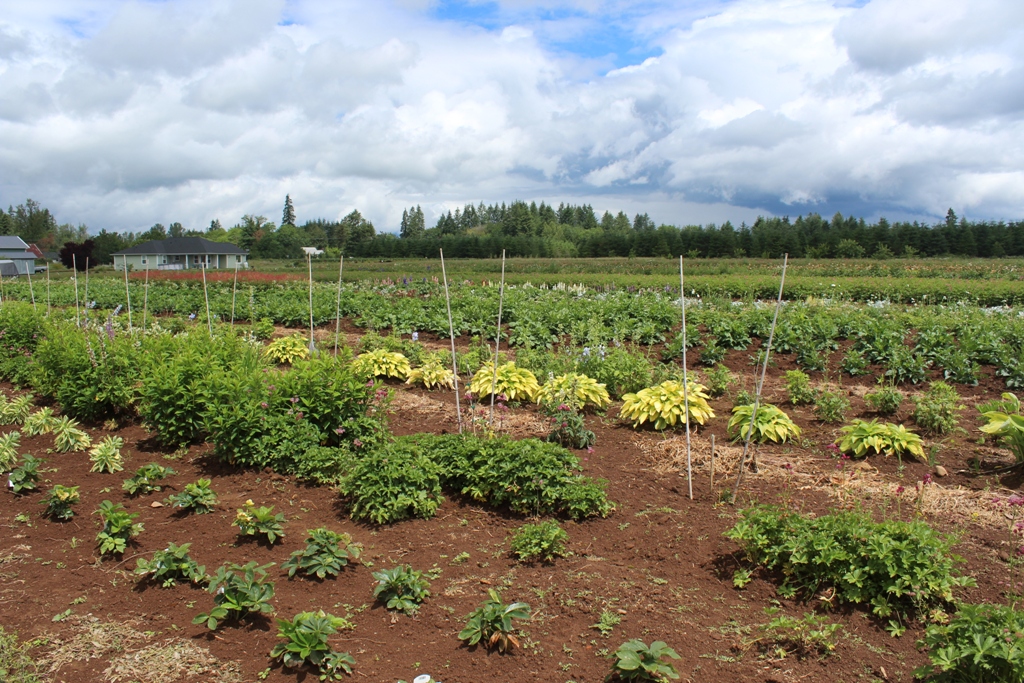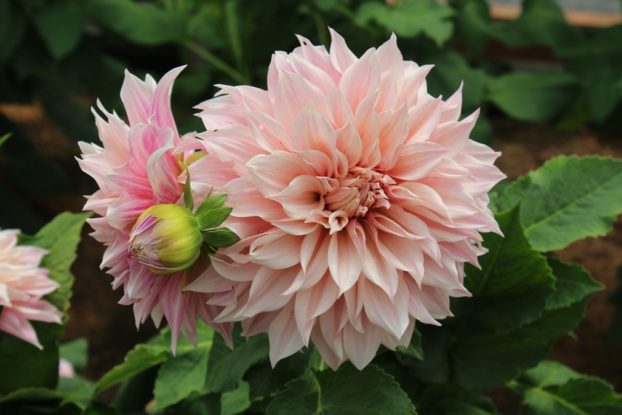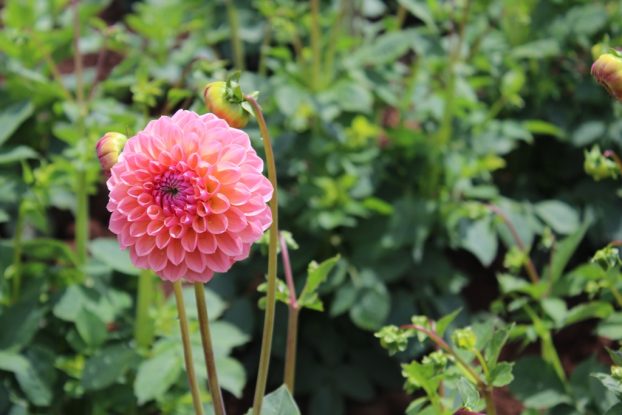Podcast: Play in new window | Download
Subscribe: Apple Podcasts | Podcast Index | RSS | More
In the world of self-promotion in which we all live (or some may say “endure”), it’s always refreshing to meet someone who just lets his or her work speak for itself.
I’m married to someone like that and since I’m a clinical extrovert, I sometimes find frustrating to see someone who is so incredibly talented, someone who actually possesses an innate gift, who doesn’t want to broadcast their story to the world.
Maybe that’s the job of the Slow Flowers Podcast — to share stories of those modest, unsung heroes who are doing amazing work in our profession.
So today I want to share one of those voices with you and let you hear his story. His name is Gonzalo Ojeda and he and his wife Maria own Ojeda Farms in Ethel, Washington. Ethel is located southeast of Washington State’s Mt. Rainier–more importantly for customers of the Seattle Wholesale Growers Market, it’s about 1 hour 45 minutes south of Seattle — on a good day. Gonzalo or one of his farm crew makes at least one if not two round-trips a week to deliver a huge selection of healthy flowers to the market floor, driving on I-5 – one of the worst traffic corridors on the West Coast. You never hear him complain, though. He’s a passionate grower who started cut flower farming as a side gig while handling a full-time job at a commercial nursery that grows ornamentals for local big box retailers.
This is Gonzalo’s bio from the Seattle Wholesale Growers Market “about us” page:
Gonzalo was born and raised on a farm in the southern state of Oaxaca, Mexico. His family grew volumes of tomatoes, tomatillos, peppers and onions for many generations and sold them to large-scale wholesale buyers.
When southern Mexico began experiencing major droughts a few decades ago, vegetable production went into decline and Gonzalo came to the U.S. to work for a short period so he could help pay off his family’s farm debts. He was just 21 and his mother worried for him because he only knew a few words in English. “I knew how to say ‘chicken’ and ‘table’ and that’s about it,” he recalls. Gonzalo arrived in Washington State, got himself just enough schooling to learn how to ask for a job in English and began working picking strawberries and raspberries.
Within the year, he had secured a job working in greenhouses, propagating ornamental plants. He liked the work and has stayed with the same company for nearly 20 years. At first, he always thought he would return to Mexico, but the droughts continued… and then he met his wife Maria. They bought their Ethel farm in 2000. Gonzalo began experimenting with growing perennials in his spare time after work and on weekends–starting with a few hundred feet of astilbes, soon adding several acres of peonies and other perennials. Through hard work and a strong drive for quality, Gonzalo and Maria now have ten acres of perennials in production. Like their beautiful flower crops, the Ojedas have become firmly rooted in Washington State, with their three sons, Ricky, Fernando and Esau.
Because of our schedules, I rarely run into Gonzalo when he’s at the Market (ie, he’s in and out long before I’m up and about).
But I’ve been wanting to visit his farm and record an interview for this podcast. I made time for that visit in mid-June when I had a trip scheduled to Portland for another assignment. And because it was Saturday, Gonzalo was home with the boys but Maria was not — she has begun to sell their flowers at the nearby Olympia Farmers Market, a year-round farmers’ market, open every Saturday, with extended Thursday-through-Sunday hours in the peak season.
I turned on the recorder and Gonzalo and I began by walking around the vast farm, starting with a peek inside the high tunnels and hoop houses. We moved to the fields of woody ornamentals, perennials and annuals, a beautiful quilt of bloom color and healthy, vigorous plants. Along the way, I asked Gonzalo about his life as a flower farmer, about specific varieties and about how he manages two jobs and tens of thousands of stems.
I hope you enjoy our conversation and be sure to follow Ojeda Farms’ new Instagram feed here.
Here is a gallery of the Ojeda Farms’ Peonies.
Thanks for listening! Rumor has it that Gonzalo and Maria will open up their farm for a private Seattle Wholesale Growers Market tour next spring during the peak of peony season, so if you’re a buyer’s card holder, you’ll be lucky enough to get in on that event. You can find Ojeda Farms’ lush, Salmon Safe flowers at the Seattle Wholesale Growers Market right now — and I promise you — the farm cranks out super healthy, fresh flowers. I want to add that Tammy Myers of First & Bloom, a Slowflowers.com member and past guest of this podcast, wrote a blog post last summer about her visit to Ojeda Farms, which you can read here. Something Tammy wrote is worth repeating here:
“Optimal flower picking time is in the early morning or late evenings, especially during the summer months. Not only is it easier for the farmers to work in cooler conditions, but it’s also best for the crops. The flowers, commonly referred to as cuts or stems, are picked from the fields and immediately placed in coolers. As soon as a flower starts to warm up in warmer temperatures, it begins its blooming cycle. The longer the cut stays in cooler temperatures, the longer it stalls the blooming cycle. From the moment that flower is cut from the field, it’s an absolute race to get them from field to florist to customer.
I wasn’t going to mention it…. BUT…… can you actually say that about imported grocery store varieties????
I don’t think sooooo!
This crucial step in flower farming and probably agriculture in general, is just part of the everyday grind flower farmers face. Yet, there was something so special and personal about Ojeda Farms, I had to know more.”
Like Tammy, the curious urge to “know more” is an emotion that leads many of us to consider the faces of farmers behind faces of flowers. Thank you for joining us today.
Recently I was encouraged to add a “donate” button for this podcast. I sheepishly did so and this week we received our first contribution — from listener Ann Carper of Washington, D.C.

Please use the PAY PAL button in the right column of our home page.
I’m not sure I know Ann, or whether we’ve met in the past. That she would make a small donation to sustain the production and broadcast of the Slow Flowers Podcast was a lovely thing.
We spend out-of-pocket about $5,000 each year to record and produce 52 episodes. Thanks to the financial support of our four sponsors about half of that is underwritten, but it still doesn’t come close to covering my travel or time spent to bring you stories of flower farmers and floral designers in as many geographical areas as possible.
So if you value the content you receive each week, I invite you to show your thanks and support the Slow Flowers Podcast with a donation — the button can be found on the home page at debraprinzing.com.
The Slow Flowers Podcast has been downloaded more than 111,000 times by listeners like you. We ended the month of July with our second-highest episode download count ever — 5,015 times. That’s amazing considering we’re at the peak of flower farming season and I know people are busy! THANK YOU to each one of you for downloading, listening, commenting and sharing. It means so much.
Thank you to our lead sponsor for 2016: Certified American Grown Flowers. The Certified American-Grown program and label provide a guarantee for designers and consumers on the source of their flowers. Take pride in your flowers and buy with confidence, ask for Certified American Grown Flowers. To learn more visit americangrownflowers.org.
More sponsor thanks goes to Syndicate Sales, an American manufacturer of vases and accessories for the professional florist. Look for the American Flag Icon to find Syndicate’s USA-made products and join the Syndicate Stars loyalty program at syndicatesales.com.
A big bouquet of thanks goes to Longfield Gardens… providing home gardeners with high quality flower bulbs and perennials. Their online store offers plants for every region and every season, from tulips and daffodils to dahlias, caladiums and amaryllis. Visit them at lfgardens.com.
And finally, thank you Arctic Alaska Peonies, a cooperative of 50 family farms in the heart of Alaska providing high quality, American Grown peony flowers during the months of July and August. Visit them today at arcticalaskapeonies.com.
Next week, you’re invited to join me in putting more American grown flowers on the table, one vase at a time. And If you like what you hear, please consider logging onto Itunes and posting a listener review.
The content and opinions expressed here are either mine alone or those of my guests alone, independent of any podcast sponsor or other person, company or organization.
The Slow Flowers Podcast is engineered and edited by Andrew and Hannah Brenlan. Learn more about their work at shellandtree.com.









